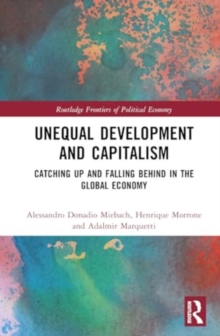
Social Fairness and Economics : Economic Essays in the Spirit of Duncan Foley EPUB
Edited by Lance Taylor, Armon Rezai, Thomas Michl
Part of the Routledge Frontiers of Political Economy series
EPUB
Description
This volume brings together papers inspired by the work of Duncan Foley, an extraordinarily productive economist who has made seminal contributions to a wide variety of areas.
Foley’s work cannot be easily classified, but one thread that runs through it is a critical examination (along both ethical and analytical lines) of conventional neoclassical economic theory, particularly involving general equilibrium theories of value and money.
Foley was a pioneer of complexity economics as well, which adopts approaches to these questions drawn from natural sciences, so the collection therefore has an interdisciplinary quality that will interest a wide variety of readers. Some of the chapters are intellectual biographies that contextualize and identify Foley’s contributions to Keynesian macroeconomics, Marxian value theory, and complexity theory in economics.
The topics covered include the economics of complexity; the ethics of general equilibrium theory; the economics of climate change; applications of Keynesian, Marxian and Ricardian political economy; and money and financial crises. The collection should be useful to scholars who work in various economic traditions critical of the currently dominant free-market approach, but it also speaks to scholars of critical theory in various disciplines beyond economics such as the mathematicians, physicists, and other natural scientists who are interested in understanding the complexity of social processes using their analytical frameworks.
This book should also appeal to graduate students in economics who are working in these traditions, as well as scholars (including current graduate students in orthodox programs) who are dissatisfied with the current state of economic theory and would like to satisfy their intellectual curiosity by sampling the contributions of critical theorists.
Information
-
Download - Immediately Available
- Format:EPUB
- Pages:432 pages, 23 Tables, black and white; 44 Line drawings, black and white; 44 Illustrations, black an
- Publisher:Taylor & Francis Ltd
- Publication Date:11/02/2013
- Category:
- ISBN:9781136270871
Information
-
Download - Immediately Available
- Format:EPUB
- Pages:432 pages, 23 Tables, black and white; 44 Line drawings, black and white; 44 Illustrations, black an
- Publisher:Taylor & Francis Ltd
- Publication Date:11/02/2013
- Category:
- ISBN:9781136270871










